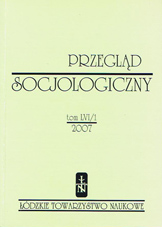Wykorzystanie psychologii poznawczej do interpretacji rezultatów sondaży przedwyborczych i wyników wyborów
Interpretation of pre-election poll findings and election results from the perspective of cognitive psychology
Author(s): Aneta KrzewińskaSubject(s): Social Sciences
Published by: Łódzkie Towarzystwo Naukowe
Summary/Abstract: In the course of an election campaign party committees do their best to show their candidates in a favourable light and, at the same time, discredit their rivals by way of searching for or making up disparagements. The author assesses the impact of the campaign ‘breaking news’ on respondent and voter behaviour, including responses elicited in a survey and decisions taken in a polling station. With reference to cognitive psychology, the author takes a closer look at ‘sensational’ disclosures targeted at two presidential candidates (the so-called ‘Jarucka case’ meant to vilify Włodzimierz Cimoszewicz and the allegations that Donald Tusk’s grandfather was a Wehrmacht soldier) as translated into survey findings and voting results. The above revelations are seen as stimuli triggering respondents’ cognitive schemata that generate the context effect (i.e. the assimilation or contrast effect). The effect is studied via the analysis of election poll results and the outcome of the Polish presidential elections of 2005.
Journal: Przegląd Socjologiczny
- Issue Year: 56/2007
- Issue No: 1
- Page Range: 203-220
- Page Count: 18
- Language: Polish

